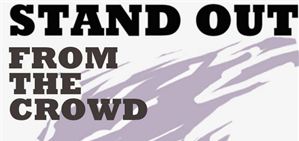 Many of you will resolve to do a whole host of things in 2016. Some will vow to eat healthier, lose weight or save money—while others will pledge to land a new job, get a promotion or earn more money.
Many of you will resolve to do a whole host of things in 2016. Some will vow to eat healthier, lose weight or save money—while others will pledge to land a new job, get a promotion or earn more money.
Many people go into a New Year with resolutions or goals for their career for the next 12 months, “The holidays are a great time to reflect and begin implementing your resolution plan.”
I do believe that it’s fairly common for most people to have career-related New Year’s resolutions because work is such an important part of our daily lives, therefore, it’s in our best interest to try to become better at what we do for a living.
The end of the year is always a great time to reflect on what has worked and what hasn’t worked for us, and to think about what we want to do differently next year.
New Year’s resolutions tend to be reactions to things we want to change in our lives, I have a good friend who only makes resolutions she knows she will keep, so they tend to be positive and something she really wants to do. The same could be said of career-related resolutions: some can be in reaction to things you want to change, but you should also consider some aspirational, desirable resolutions.
Creating an actual plan will help you stick with your career-related goals for the year. Some resolutions are inward-focused, such as improving a mindset or stopping a bad habit, and sometimes career-related resolutions are outward-focused, such as expanding your professional network or getting your name ‘in the mix’ for a lateral move to another department.
To increase your probability of sticking to your resolutions, prioritize your list and don’t sign up for too much all at once.
Here are 11 of the most popular career-related
resolutions, along with tips for sticking to each of them.
- Get a raise or promotion. Talk to your manager now to really understand what it will take and what the timeline is for receiving a raise or promotion. When you have specific, tangible, measurable goals they are much more realistic to achieve.
Before you pursue this one, you’ll want to consider your request from the company’s viewpoint, what are you doing or what do you offer that is addressing a big issue or need for the company? Promotions and raises have two parts: what you bring and what the company needs. No matter how fabulous your skills are, if the company doesn’t need them, it can’t justify a promotion or pay raise.
The best way of proving that you offer what the company needs is to come up with a list of your daily responsibilities, the major projects you’ve worked on, projects you’ve worked on that you weren’t asked to do, recommendations or endorsements from others inside or outside the company, future responsibilities, examples of how you’ve made your boss’s job easier, and, if possible, quantify your accomplishments, don’t mention that you work hard (so does everyone else) or that you’ve been with the company for a long time. Longevity doesn’t necessarily count, but results do.
Once you have a compelling story about the value you bring to the organization, get a good friend to rehearse your request, listen to their feedback and practice again. This is one of the most important conversations you’ll ever have and you should be highly prepared to have it.
- Reduce stress. Ask yourself if the stress is coming from outside sources (your supervisor, colleagues, etc.) or if it’s self-induced. Perhaps you’re putting too much pressure on yourself, If so, step back and start with the simple things like sleeping and exercising more. Don’t place the weight of the world on yourself. You can’t do everything so don’t try to.
One excellent way to reduce stress is to gain better control by managing up. “Most bosses barely have time to get their job done, save overseeing yours. In the process, hasty decisions can be made; not enough time may be spent upfront on a project; your wishes may not be heard; there may be misalignment with what you can achieve and when, and so on.” So here is your opportunity in 2016 to take your boss by the proverbial hands and set meetings, goals, and your agenda. “If you are reactive, don’t be surprised if you also are more stressed out, juggling more than you can handle. But if you present logical to-do lists and provide leadership, you will thrive. This resolution is different for everyone because we all have different stress triggers and favorite ways of relaxing. Know what works for you. Maybe it’s walking around the block, calling a friend, playing online for five minutes, or breathing deeply. Do your best to fit that de-stressor into your day on a regular basis.
- Be more organized. “Getting a head start on organization coming into the New Year is wonderful, however maintaining it is a little more difficult, Don’t overwhelm yourself into a whole new way of doing everything. Rather, focus your efforts on one or two key areas where you want to be more organized and maintain them throughout the entire year.
There are two key areas that are very important to keep organized in all jobs: your calendar and your desktop. Once you determine a system that works for you to manage your time effectively, the more you will be able to accomplish at work, and, in turn, the better you will be at your job. “If you use an online calendar system consider color-coding various tasks to track how you are spending your time, actively using the task management function as your checklist (instead of thousands of post-it notes), and utilizing the meeting tracking function to stay on top of the agendas and attendees.”
Your desktop is a direct reflection on how you manage your job, and management and executives do pay attention to this. Your office or desk is the first impression for anyone that is working with you to see how you manage your workload and how you take pride in your professional presence.
Keeping a clean and organized workspace can also help reduce stress. It’s obviously much easier and less stressful when you can easily find important projects and papers on your desk, If not, this could hurt your work efficiency and productivity.
- Quit your job/get a new job. Consider this one if you feel stuck, you hate your boss or your company, or there’s no opportunity for growth and you have skills that match needs in the marketplace. Take matters into your own hands and look for a place or a role where there’s buzz and excitement.
If you’re simply unhappy with your position or responsibilities—seriously consider a new role within your current company. Instead of looking for a way out this year, it may be worthwhile to focus your efforts to creating a plan to stay. An internal move is usually an easier and quicker way to achieve your career progression goals. You have an advantage at your current company because you are a known entity.
Whether you stick with your employer or pursue a job elsewhere, you need to take the time to figure out exactly what you want in a new job–and then ensure that your personal brand is accurately and professionally reflected in three key mediums: your online presence (your LinkedIn profile or Google search links), your on-paper presence (your résumé and cover letter), and your in-person presence (your elevator speech).
There are many people who don’t like what they’re doing for a living and are ready for a change. They see the new year as a great starting point to look for a new job. The one thing I would recommend is to only quit your current job if you have a new one lined up, especially in this economy. You have a lot more leverage that way.
If you’re unhappy with your current role but unable to find a new job—consider modifying your job description within the same company and do more of what you enjoy. The company has invested in you and a slight shift in your role and responsibilities may be viewed as a win-win. In this scenario, the squeaky wheel may get the grease; don’t overlook the possibilities.
- Improve your work-life balance. Get clear on what your boundaries are, and stick to those boundaries so your colleagues start to know how best to work with you.
Part of this might be working more or fewer hours.
If you work late every night, vow to leave the office earlier. Many people work long hours every day and it really infringes on their personal life. They want to leave earlier each day but aren’t sure how to go about doing it. One solution is to come in earlier. If you can get things done first thing in the morning, perhaps it will allow you to leave earlier each day.
Another solution is to delegate more. If you’re a supervisor, try giving your employees more work so that you will have less. You can also try to prioritize better. Don’t try to please everyone because then you’ll end up pleasing no one. Work on the most important projects and realize that you can’t finish everything in one day. There’s always tomorrow.
- Network more effectively. You might want to tweak your approach to networking. As you embark on professional networking, you need to drop the ‘me’ perspective and go into your interactions with other professionals with a partnership perspective. Remember that both of you are there to share, learn and help each other out professionally. You and others will get more out of this type of ‘give and take’ relationship than the single-sided approach.
Once you’ve got that down—try to become more active on LinkedIn or other professional social networks. Schedule 10 to 15 minutes three times a week (or whatever consistent schedule works for you) to set up a great profile, connect with colleagues and former colleagues and surf around LinkedIn to see where you can add value and what features of the site will be most helpful for you.
If you are more of a face-to-face networker, stay involved with your college alumni networks and your regional professional associations. And make an effort to attend more networking events.
Start with a realistic goal, like attending one networking event per month. It’s also a good idea to have an accountability partner–someone with a similar goal who will encourage you to stick to your plans and not bail at the last minute. Also, try to find events that really appeal to you, with great speakers or at fun venues, so you are more likely to attend and enjoy yourself.
- Improve your relationship with the boss/co-workers. If there’s one relationship that you should constantly be focused on, it’s your relationship with your boss. They control your destiny so it behooves you to develop a really strong professional relationship with them and to work at improving that relationship. How do you accomplish this? It all comes down to communication. Stay in touch with your boss throughout the day by letting them know about your progress on important projects. Let them know that you’re there to help them in any way possible. Ask them how you can be better at your job and what their expectations are. Anticipate your boss’s needs and by focusing on them, you should be able to improve your relationship with your boss.
Cooperation with your co-workers is also critical. We all want to have a department of supporters who will have our backs and we have theirs. It’s not always possible to get along with everyone in your department. Sometimes there’s friction between co-workers and it may be our fault, it may be theirs. Again, it comes down to communication.
Make an effort to get to know your co-workers better and offer your help when they need it. Keep in mind that it’s in your best interest when the entire team looks good, not just you.
- Develop your communication skills. It might be difficult to improve your professional relationships if you’re a poor communicator. If that’s the case, you might resolve to enhance those skills in 2016.
Being a better communicator is a great career-related New Year’s resolution. Consider taking local adult education classes for presentation or communication skills. If you think your business writing could use a refresher course, consider an online college or adult education class. You can also pick up a book and learn the ropes if you’re self-motivated. Strong communications skills is often what separates great employees from good ones.
- Get a degree. One study I read said that one of the biggest regrets people have late in life is not finishing a degree. I’m amazed at the number of people who go back to school late in life and find they are highly successful, motivated students—which is often quite the contrast to their first school experience.
There are endless options for online or flexible degree programs for those who want to go back to school later in life—so whether you want to earn an undergraduate degree or a Ph.D.–you should get the wheels in motion in 2016 by researching programs and setting a date by which you want to complete the program. “It’s simply never too late.”
- Be better with e-mail and voicemail. Many workers vow to return phone calls and e-mails faster. One quick way to hurt your work reputation is to not return phone calls and e-mails in a timely manner. If you don’t, you will have a lot of unhappy campers on your hands.
When you return from a meeting or lunch, and you have a list of people who called or e-mailed you, make an effort to get back to them promptly, in the same day if possible, depending on your workload and what their request is. It’s critical to prioritize by their deadline, importance of the project, and title of the person making the request.
Another way to expedite this process is to clear out your inboxes often.
The only difference between physically cleaning your desk and cleaning out your e-mails and voicemails is that you can delete messages with the touch of a button. Once you listen to the message or read the e-mail and take note of the important information—delete it (unless you need the message for your records).
“It feels much better when our e-mail or voicemail backlog is manageable.”
- Have a better attitude. A positive attitude can bring you great career success in 2016. The resolutions we hear all the time, like make more money, get a promotion, do work I love, be a better networker, are more likely to happen if you have a more positive attitude. People want to do business with people who are proactive, positive and enthusiastic, so a good attitude will likely attract more people and opportunities your way. If you want to be more optimistic this year, you’ll need to take good care of yourself; spend more time with family and friends–or doing the things that make you most happy; learn to appreciate what you have (both in your personal and professional lives); and smile more.
Unfortunately, most people fail to follow through on New Year’s resolutions.
Once Jan. 2nd hits we’re usually thrown right back into the grind and get caught up in our day-to-day tasks and short-term goals.
Most people give up their resolutions by February, “after the momentum of the New Year has worn off.”
But if you really want to stick to any goal, the best thing to do is get clear on the outcomes you want and what it takes to achieve them, set actions in your calendar so you really make time for your goals, and have accountability partners to keep you on track.
If you make a list of 10 things to do in the new year regarding your career, perhaps just focus on two or three of the most important ones. Once you accomplish one of these, pat yourself on the back and move on to the next one. It is important to prioritize your resolutions, and consider only tackling a few in the first few months. Then, assess your progress regularly, and determine if you need to continue to focus on just a few goals, or if you are ready to add a few more to your actionable to-do list.
Another trick for staying on track is to send yourself some predated e-mail messages. Write a half dozen e-mail messages to yourself, dated every other month. A few times a year you’ll get a reminder from your motivated self to get back in touch with important goals in your life.
As the year wears on, the excitement of a new plan can wear out–unless you stay vigilant in your purpose.
 It’s time to escape the Black Hole recruiting portal. Here are three surefire, innovative ways to grab your recruiter’s attention from the get-go.
It’s time to escape the Black Hole recruiting portal. Here are three surefire, innovative ways to grab your recruiter’s attention from the get-go.
 If improving your career – advancing to management, making more money, being more fulfilled – is on the agenda for 2016, why not dedicate each month to a different area of professional development? This way, you don’t have just one possibly overwhelming goal, but rather 12 smaller steps that you only have to maintain for 30 days. You can even reorder the below suggestions based on what most interests you now:
If improving your career – advancing to management, making more money, being more fulfilled – is on the agenda for 2016, why not dedicate each month to a different area of professional development? This way, you don’t have just one possibly overwhelming goal, but rather 12 smaller steps that you only have to maintain for 30 days. You can even reorder the below suggestions based on what most interests you now: Words to use on your resume, and in your interview, if you’re over 40 years old.
Words to use on your resume, and in your interview, if you’re over 40 years old. Confucius said, “Choose a job you love, and you will never have to work a day in your life.” Use these tips to help you discover and pursue a job you’ll love.
Confucius said, “Choose a job you love, and you will never have to work a day in your life.” Use these tips to help you discover and pursue a job you’ll love.  When self-promotion doesn’t come as naturally to you as product promotion does, here are 5 tips to help you master the most important marketing presentation.
When self-promotion doesn’t come as naturally to you as product promotion does, here are 5 tips to help you master the most important marketing presentation. 